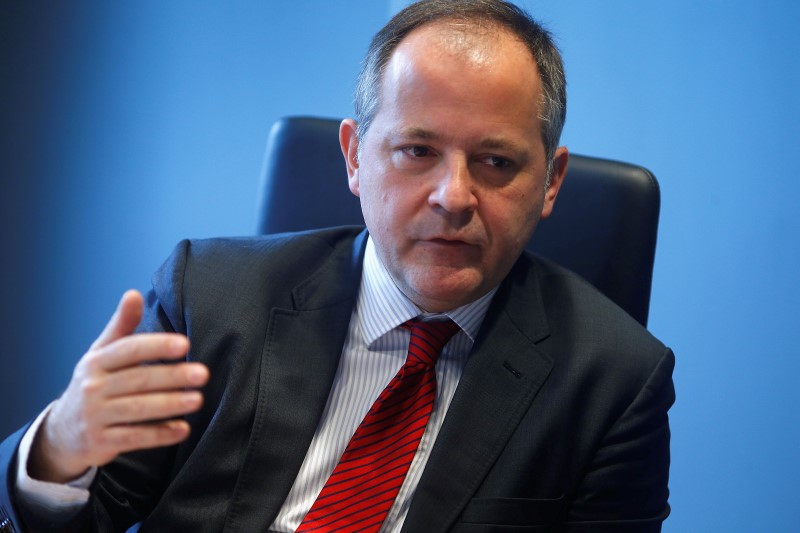FRANKFURT (Reuters) - Germany would lose out if the European Central Bank abandoned its inflation target while low interest rates are a boon, not just a burden, a top ECB policymaker said on Sunday, responding to a barrage of criticism from German officials.
Without repeated ECB stimulus, economic activity would be subdued, unemployment would be higher and a sound public budget would be more difficult to achieve, even in Germany, ECB Executive Board Member Benoit Coeure said, following weeks of criticism from officials including German Finance Minister Wolfgang Schaeuble.
Inflation has hovered either side of zero for the past year and the ECB cut its deposit rate deeper into negative territory in March when fresh forecasts showed it would miss its target of nearly two percent for several more years.
"In Germany, the ECB has recently been repeatedly criticized for hurting savers through the currently very low interest rates," Coeure said in an opinion piece in the Frankfurter Allgemeine Sonntagszeitung newspaper.
"Thanks to improved economic conditions, stimulated not least by monetary policy, real income and employment in Germany have increased in recent years," Coeure said. "In other words, we need low interest rates now to ensure a normalization of economic conditions, including higher returns on savings in the future."
Some German officials have complained that negative rates hurt thrifty savers and weigh on the banking sector in Europe's biggest economy, particularly small saving banks which have traditionally relied on positive nominal rates. Schaeuble said last month that record-low rates were causing "extraordinary problems" and had contributed to the rise of the right-wing AfD party.
Coeure said while the ECB has been "very flexible" in interpreting its own inflation target, abandoning it would create instability, raise the risk of deflation and possibly lead to weaker economic activity and higher unemployment.
"Silently giving up on the commonly agreed inflation objective, which has served the ECB well for the last 13 years, is not an option," Coeure said. "However, there are compelling reasons to suggest that inflation in the euro area will go up only gradually."

This week ECB chief Mario Draghi, also responding to German criticism, defended the central bank's policies in an interview in a German newspaper.
